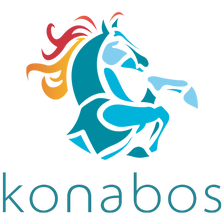What does Composable DXP mean for Delivery Managers?
Mostafa Hanafi - Program Manager
31 May 2022
One of the most popular topics in the current Digital Marketing space is Composable Digital Experience Platforms (DXP). In simple terms, Composable DXP is a platform made up of various specialized software tools. As per Gartner’s recommendation, Sitecore (and other major CMSs) leaders are moving towards this Composable DXP direction because of the benefits it brings to their organizations. Unlike a monolith platform, where all system features are combined under one roof and supplied by a single vendor, composable DXP offers more flexibility, better business capabilities, and greater cost-effectiveness.
But what does this really mean for delivery managers? And how does it impact the way projects should be implemented? In this article, I am highlighting three main areas of impact for delivery managers.
“Delivery Manager” definition: The person ultimately responsible for delivering the right services to their clients or internal teams.
The New Tech Stack
Composable DXPs introduce a new set of technologies. Unlike a monolith platform, each composable DXP implementation includes a variety of interconnecting digital products, each of which is built on different tech stacks. Therefore, the biggest challenge for delivery managers becomes the knowledge gaps that need to be filled to ensure a successful implementation.
Delivery managers will be required to add such new skill sets to their team. One obvious way to do this is to hire new team members with the required experience. However, a better and more sustainable approach is to invest in the professional development of the existing development team. Allowing team members sufficient time to learn and explore a new composable DXP tech stack will lead to higher employee satisfaction and sustainable team growth.
Delivery managers should also lead by example and familiarize themselves with the new digital products to effectively communicate with their development and executive teams. Leading this knowledge acquisition exercise is crucial for composable DXP implementations because of the scarcity of documentation and expertise in this emerging field. Therefore, delivery managers should always encourage their team members to seek help from the community and continuously share their knowledge with other community members.
A More Agile Delivery
This is good news for delivery managers!
As project teams free themselves from the shackles of monolithic systems, agile delivery becomes more achievable. Project teams are now able to move faster towards building the building blocks of their system by choosing to launch specific features/products as per the product roadmap.
With monolith platforms, delivery managers would typically plan their launch when the whole system is ready to go live. This caused additional delays in timelines and an inability to adapt to the rapidly changing business and user needs.
The way composable DXPs are structured allows delivery managers to lead agile implementations by reducing the dependency on a single technology for launch. The main benefit of this approach to delivery managers is the ability to gain customer feedback faster and iterate more frequently to ensure the right business and user needs are being met.
Consequently, measurability becomes a very important (and equally challenging) aspect for the agile delivery of composable DXP implementations. Delivery managers should define the success metrics early on so that once feedback is received across the various technologies, used it could be used to assess the performance and output of the project team.
The need for building team relationships
Traditionally, it is the Account Manager’s job to build clients/vendors relationships and maintain a healthy rapport with project stakeholders. However, as composable DXP brings multiple teams together for a single implementation, delivery managers now have a new responsibility. Composable DXP projects would include multiple teams from various vendors, who are expected to collaborate for delivering the project. Many of those teams would not be directly managed by the delivery manager, therefore building a rapport with such vendors becomes essential for project delivery. A current challenge to this responsibility is the new normal of remote work and the fact that vendors may not be in the same geographic location. To overcome this challenge and to maximize collaboration between teams, delivery managers should invest their time into developing personal connections with all team members through continuous touchpoints and team-building activities.
I believe that software delivery management will continue to evolve as more organizations start embarking on the Composable DXP journey globally. There’s still a lot to be learned and practiced in this area, and the key to successful Composable DXP implementations will now become the knowledge that community members (including marketers, developers, and delivery managers) share amongst themselves.

Mostafa Hanafi
Mostafa is an experienced Project Manager and Scrum Master who has been managing Sitecore projects for more than 4 years. During his 8 years of experience in the field, Mostafa has also excelled as a Business Analyst and Product Manager, where he practices his passion for solving problems. In addition, Mostafa is also a two-time Sitecore MVP. As a Program Manager at Konabos, Mostafa will work with clients to ensure their business goals are achieved in the most efficient and cost-effective way.



Share on social media